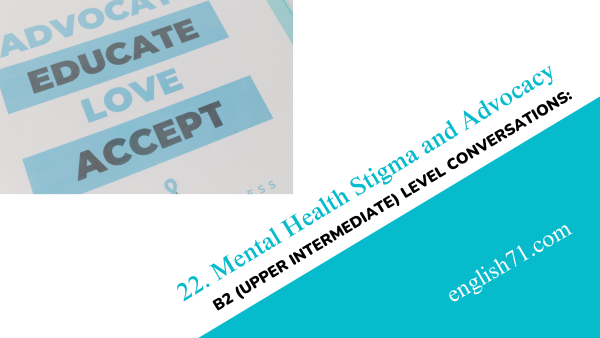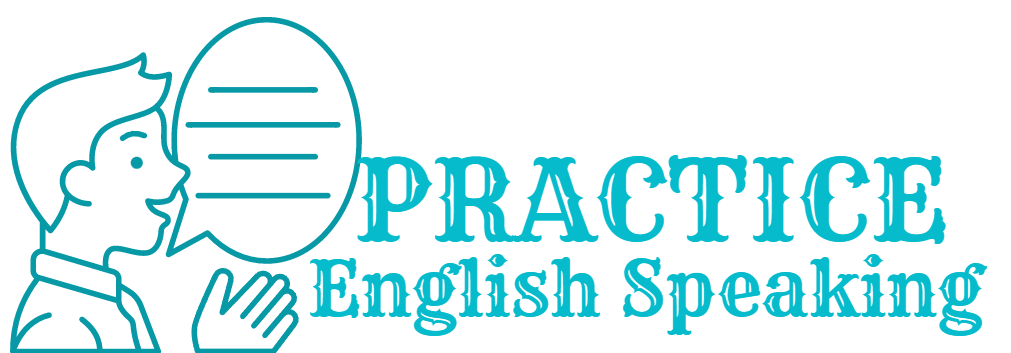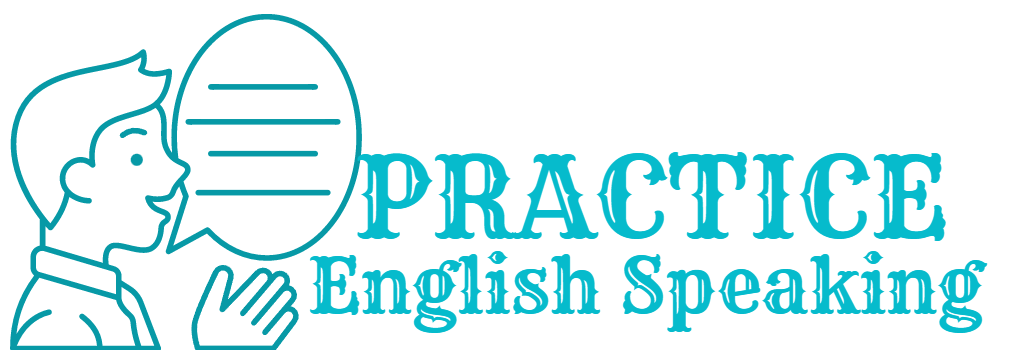B2 (Upper Intermediate) level Conversations: (22)Mental Health Stigma and Advocacy

Sarah: Hey Sam! Have you noticed the increasing awareness around mental health lately?
Sam: Absolutely, Sarah. It’s great to see more conversations happening, but there’s still a lot of stigma attached to mental health issues.
Sarah: Yeah, that’s true. People sometimes hesitate to seek help due to fear of judgment. Do you think societal attitudes are changing?
Sam: Slowly, I think. There’s more information available now, but there’s still work to be done to break down stereotypes. Advocacy plays a crucial role in that.
Sarah: I couldn’t agree more. Changing perceptions requires ongoing efforts. Have you come across any campaigns or initiatives addressing mental health stigma?
Sam: Yes, there are some powerful campaigns challenging stereotypes and encouraging open conversations. It’s essential to create spaces where people feel comfortable discussing mental health.
Sarah: Absolutely. Education plays a significant role too. The more people understand mental health, the less likely they are to stigmatize it. Have you noticed any positive changes in media representation?
Sam: Definitely. There are more authentic portrayals of mental health in movies and TV shows. It helps in normalizing these conversations and making people feel less alone.
Sarah: That’s a positive step. It’s crucial to show that mental health is a universal concern. Do you think workplaces are becoming more supportive of employees’ mental well-being?
Sam: Some are, but there’s still progress to be made. Flexible work hours, mental health days, and employee assistance programs are becoming more common, though.
Sarah: It’s good to see companies recognizing the importance of mental health. Let’s talk about advocacy. Have you ever been involved in any mental health advocacy work?
Sam: Not directly, but I’ve supported campaigns and shared resources on social media. It’s a small contribution, but every bit helps in raising awareness.
Sarah: Absolutely. Social media can be a powerful tool for advocacy. It’s about spreading information and encouraging empathy. Have you faced any challenges discussing mental health openly?
Sam: Well, there’s always the fear of judgment, but I think the more we talk about it, the more we normalize the conversation. How about you?
Sarah: I’ve had similar concerns, but the positive responses outweigh the negative. It’s essential to focus on the progress we’re making. What do you think needs to happen to further reduce the stigma?
Sam: Education, empathy, and continued advocacy. The more we understand mental health, the less likely we are to stigmatize it.
Sarah: Completely agree. It’s an ongoing process, but every conversation and every initiative contributes to a more compassionate and understanding society.
Sam: Well said, Sarah. Let’s hope for a future where mental health is treated with the same importance as physical health.
Sarah: Absolutely, Sam. And until then, let’s keep advocating and breaking down those barriers.



Summary:
In a candid conversation, Sarah and Sam discuss the evolving landscape of mental health awareness. They acknowledge the progress made in challenging stereotypes and fostering open conversations. Both note the importance of advocacy in changing societal attitudes and reducing stigma. The duo emphasizes the need for education, empathy, and continued efforts to normalize discussions around mental health. They highlight positive changes in media representation and workplace support while acknowledging the challenges individuals may face in openly addressing mental health. Overall, Sarah and Sam express optimism for a future where mental health is treated with the same significance as physical health.

